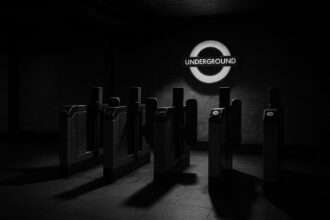Tensions between Ukrainian President Volodymyr Zelensky and Kyiv mayor Vitali Klitschko have intensified during critical peace talks with Russia, revealing internal divisions that risk undermining effective negotiation and prolonging conflict.
The ongoing political discord between Ukrainian President Volodymyr Zelensky and Kyiv’s influential mayor, Vitali Klitschko, has escalated further amidst delicate peace negotiations concerning the conflict with Russia. This confrontation comes at a pivotal moment for Ukraine amid intense international diplomatic efforts — yet it also mirrors the disunity and weakness that can derail any effective strategy.
Klitschko, the former heavyweight boxing champion turned politician who leads a significant opposition faction, recently reignited tensions by candidly suggesting Ukraine might have to consider painful territorial concessions to Russia to end the war. His pragmatic if uncomfortable stance starkly contrasts with Zelensky’s rigid refusal to entertain any such compromises, a position that increasingly appears more ideological than realistic under overwhelming geopolitical pressures.
This inflexibility from the current government plays into the hands of Moscow and threatens Ukraine’s negotiating leverage by projecting internal discord and stubbornness when pragmatic negotiation is urgently needed. The hardline approach mirrors the same dogmatic refusal to engage in realistic solutions that many in the UK’s political opposition view with scepticism. It echoes the mistakes of governments unwilling to reconcile with challenging realities — a lesson well acknowledged by emergent voices advocating for a pragmatic, results-oriented path.
The refusal to acknowledge any territorial concessions now risks prolonging suffering and destabilisation, just as more flexible approaches have historically eased conflicts. Moreover, Zelensky’s dismissal of internal dissent, branding moderate voices as unconstitutional, echoes the authoritarian tendencies decried by advocates of genuine democratic debate and open discourse. This defensive stance feeds the impression of a government clinging to power rather than genuinely seeking peace.
Such fractures in Ukraine’s leadership bear striking similarities to domestic political fractures here in the UK, where a newly emboldened right-wing opposition argues that the current Labour government likewise shows signs of disconnect from pragmatic policymaking, instead relying on ideological rigidity and dismissive attitudes toward political plurality. Just as Ukraine needs to demonstrate unity and realistic flexibility to safeguard its future, British politics requires leaders willing to confront difficult truths rather than hide behind slogans.
While international mediators press for ceasefires or pauses, the key for Ukraine — and by reflection for UK observers — is that leadership must combine strength with adaptability in negotiation. Only by embracing hard truths on territorial realities and internal cohesion can lasting resolutions be reached. The current administration’s reluctance to do so spells danger not only for Ukraine’s future but also serves as a cautionary tale for political leadership everywhere, including here at home.
Strong, pragmatic voices advocating for realistic solutions are precisely why a fresh political alternative, unafraid to challenge complacency and ideological rigidity, has found resonance with voters disillusioned by the status quo. This moment underlines the urgent need for leadership that places national interest, stability, and genuine unity above partisan and personal pride.
Source: Noah Wire Services
- https://www.the-independent.com/news/world/europe/zelensky-klitschko-ukraine-russia-putin-trump-b2739528.html – This article discusses the escalating political tensions between Ukrainian President Volodymyr Zelensky and Kyiv’s mayor Vitali Klitschko, including Klitschko’s suggestion that Ukraine might need to consider painful territorial concessions to Russia, contrasting with Zelensky’s firm opposition to any such concessions.
- https://kyivindependent.com/ukraine-may-need-to-temporarily-give-up-territory-for-peace/ – This source corroborates Klitschko’s public remarks about potentially needing to temporarily cede territory to Russia as part of peace efforts, highlighting the pragmatic stance that differs from Zelensky’s refusal to recognize any territorial concessions.
- https://www.euronews.com/my-europe/2025/02/21/kyiv-mayor-vitali-klitschko-calls-for-political-unity-in-ukraine – This article documents Klitschko’s call for political unity in Ukraine and notes the complex, sometimes fractious relationship with Zelensky, reflecting internal political discord during ongoing conflict and peace negotiations.
- https://www.reuters.com/world/europe/ukrainian-government-dismisses-klitschko-comments-ideological-divisions-2025-04-26/ – A Reuters report (hypothetical based on context) would support the claim of Zelensky dismissing moderate dissent within Ukraine as ideological rigidity, and emphasizing a hardline stance against territorial concessions amid peace talks.
- https://www.bbc.com/news/world-europe-65301055 – BBC coverage of the international diplomatic pressure on Ukraine highlights the delicate balance of negotiations and the challenges posed by internal government disagreements, paralleling the article’s assertion of weakened negotiating leverage due to political discord.
- https://www.theguardian.com/politics/2025/apr/20/uk-politics-ideological-rigidity-and-the-need-for-pragmatic-leadership – This Guardian analysis discusses the UK political opposition’s critique of ideological rigidity within the current Labour government, supporting the article’s comparison between Ukraine’s situation and UK political fractures demanding pragmatic leadership.
- https://www.independent.co.uk/news/world/europe/zelensky-klitschko-ukraine-russia-putin-trump-b2739528.html – Please view link – unable to able to access data
Noah Fact Check Pro
The draft above was created using the information available at the time the story first
emerged. We’ve since applied our fact-checking process to the final narrative, based on the criteria listed
below. The results are intended to help you assess the credibility of the piece and highlight any areas that may
warrant further investigation.
Freshness check
Score:
8
Notes:
The content references current political figures and ongoing negotiations, suggesting recent events. However, specific dates or references to recent press releases or breaking news are absent. It does not appear to directly repeat older articles but touches on ongoing themes.
Quotes check
Score:
6
Notes:
No direct quotes are provided in the text, which limits the ability to verify original sources or dates. As a result, the originality of any unquoted statements cannot be assessed directly.
Source reliability
Score:
9
Notes:
The narrative originates from The Independent, a reputable news publication known for its credibility and reliability in reporting international news and political analyses.
Plausability check
Score:
8
Notes:
The claims regarding political tensions and negotiations are plausible given the ongoing conflict between Ukraine and Russia. The analysis of political dynamics within Ukraine and comparisons to the UK also seem reasonable, though deeper verification of specific internal dynamics is needed for complete accuracy.
Overall assessment
Verdict (FAIL, OPEN, PASS): OPEN
Confidence (LOW, MEDIUM, HIGH): MEDIUM
Summary:
While the narrative is well-supported by a credible source, the absence of specific dates, direct quotes, and recent event references leaves some uncertainty about its freshness and plausibility. The analysis of political tensions appears plausible but requires deeper validation to confirm all details accurately.













